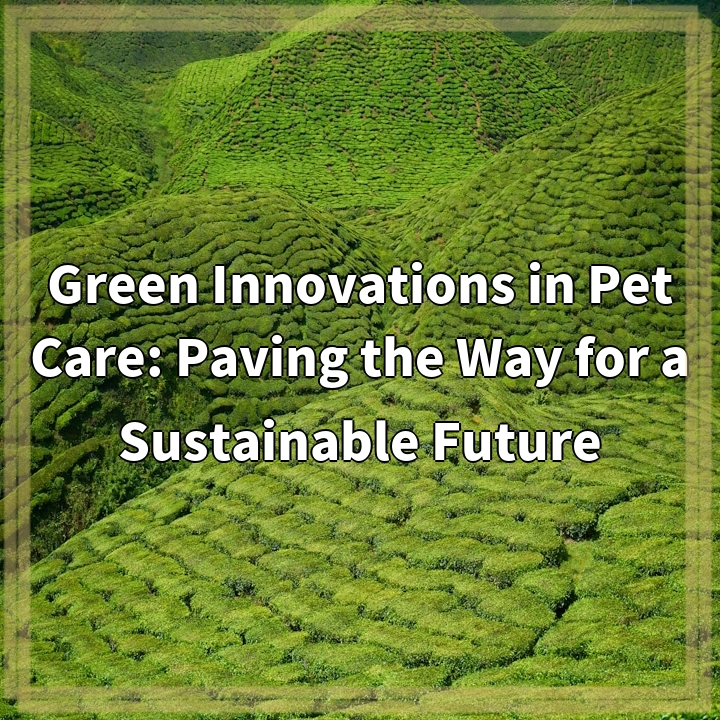
What it is:
Green Innovations in Pet Care are advancements in the pet industry that prioritize sustainability and environmental responsibility. These innovations aim to reduce the carbon pawprint of our furry friends by promoting eco-friendly practices, products, and services.
Traditional pet care practices often contribute to a significant environmental impact. The manufacturing of pet food, for example, relies heavily on resource-intensive processes, unsustainable agricultural practices, and packaging waste. Additionally, the disposal of pet waste can contaminate water sources and contribute to pollution. Green innovations in pet care seek to address these issues and find alternative, more sustainable solutions.
Real-World Problems:
There are several real-world problems associated with the conventional pet care industry:
1. Carbon Footprint:
The carbon footprint of pet food, toys, grooming products, and accessories can be significant due to the manufacturing processes, transportation, and packaging involved. The production and transportation of pet food, which often contains animal products, contribute to greenhouse gas emissions and deforestation.
2. Waste Management:
The disposal of pet waste can pose environmental challenges. Pet waste contains harmful pathogens and contributes to water pollution when not properly managed. Traditional plastic pet waste bags also contribute to plastic waste in landfills and oceans.
3. Water Conservation:
Water consumption is a concern when it comes to pet care practices such as bathing, cleaning their habitat, and watering plants used in their care. Conserving water is crucial for sustainable pet care.
4. Chemical Exposure:
Many conventional pet care products, including shampoos, flea treatments, and cleaning agents, contain harmful chemicals that can be detrimental to both the animals and the environment. These chemicals can end up in waterways and affect ecosystems.

Solutions for Green Innovations in Pet Care:
1. Sustainable and Ethical Pet Food:
One solution is to opt for pet food made from sustainably sourced ingredients, such as organic or plant-based options. This reduces the environmental impact caused by conventional pet food production and supports ethical agricultural practices.
2. Biodegradable Waste Management:
Using biodegradable pet waste bags or composting pet waste can help reduce the negative impact on the environment. Additionally, training pets to use indoor or outdoor areas designated for waste elimination can minimize contamination of water sources.
3. Water-Efficient Practices:
Using water-efficient bathing techniques, such as dry shampoo or waterless grooming products, can minimize water consumption. Collecting and reusing rainwater for pet-related activities and promoting water-conscious habits are also effective solutions.
4. Natural and Chemical-Free Products:
Choosing pet care products made from natural and chemical-free ingredients not only safeguards the health of our pets but also reduces the release of harmful substances into the environment. Homemade cleaning solutions can also be a safe and eco-friendly alternative.















